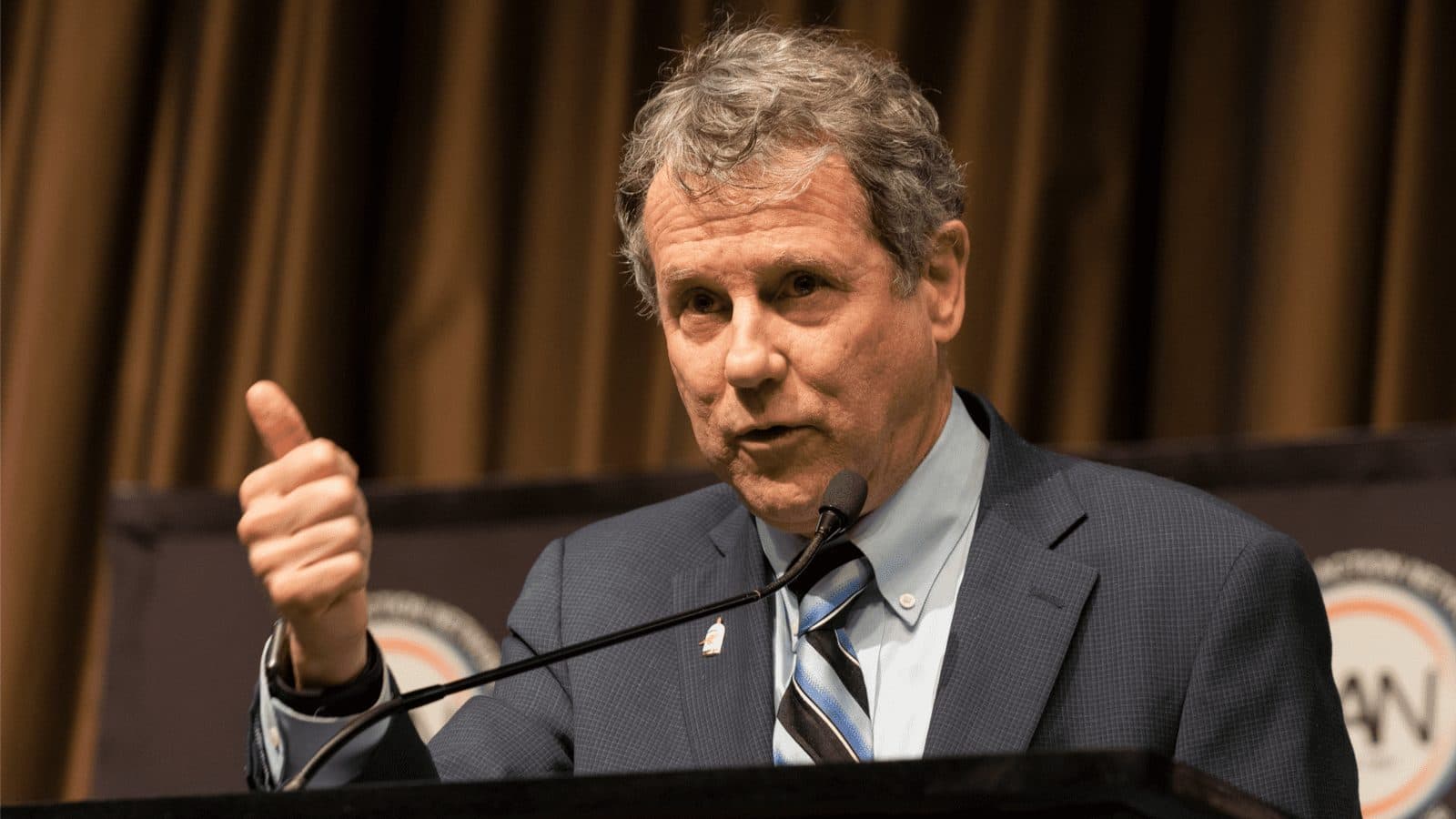Senators Can’t Agree on Path for Stablecoin Regulation During Hearing
Tuesday’s stablecoin hearing made one thing clear: US Senators are not on the same page when it comes to regulation

Sen. Sherrod Brown (D-OH); Source: Shutterstock
key takeaways
- The Senate Banking Committee heard from four stablecoin experts Tuesday to discuss the future of regulation
- Stablecoins are not effective when it comes to payments, some witnesses argued
US Senators faced off with expert witnesses, and each other, over the future of regulating stablecoins during a Banking Committee hearing Tuesday.
Sen. Sherrod Brown (D-OH), who heads the Committee, called the hearing to address growing concerns over the security and legitimacy of stablecoins, which include cryptocurrencies like Tether and Circle’s US Dollar Coin (USDC).
“These tokens can crash with crypto markets, diving by almost 30%,” Brown said during his prepared opening statement. “One day history tells us we should be concerned when any investment becomes so untethered from reality, look at the 1929 stock market crash.”
Top Committee Republican Pat Toomey of Pennsylvania opened with a more optimistic view.
“Stablecoins can speed up payments, especially cross border transfers, they can reduce costs, including remittance remittances, and they can help combat money laundering and terrorist financing through an immutable and transparent transaction record,” Toomey said.
Financial inclusion benefits questioned
Witness Alexis Goldstein, a representative of Open Markets Institute, disagreed. Stablecoins are not efficient for payment settlements due to the high fees, which disproportionately impact lower-income communities, she said.
“Stablecoins have no benefit for financial inclusion, as they’re subject to the same or higher barriers as pre-existing financial options, including the need for internet for smartphones,” Goldstein said, citing a recent report from the World Economic Forum. “As someone who’s played around with sending [stablecoins] both personally and sort of in my work, it often makes Western Union look cheap when you rack up all of the fees that you need.”
Dante Disparte, CEO and head of global policy at Circle, who appeared alongside Goldstein, argued that stablecoins will only continue to improve access to financial markets and promote innovation.
Smart contracts are and will continue to be used in a host of industries, including the insurance industry, which relies on them to help issue claims and verify property damage, Disparte. Without stablecoins, there is a limit to the impact blockchain technology can have on innovation, he noted.
“An open internet dollar functionally becomes one of the only missing links to enable [smart contracts] at scale,” Disparte said. “We’re in the opening innings and when people say we have failed the financial inclusion test, the presumption is that the stablecoin has agency just as the dollar, and both are patently wrong.”
Ahead of Tuesday’s testimony, Circle announced that USDC will now be supported on the Avalanche blockchain, a move the company said will lower fees and speed smart contract settlement. In addition to Avalanche, Circle now supports USDC across the Ethereum, Algorand, Solana, Stellar, TRON and Hedera blockchains. Goldstein specifically mentioned Ethereum in connection with high fees when completing stablecoin transactions.
In her prepared statement, Goldstein was critical of Circle’s agreement with Coinbase that allows the cryptocurrency exchange to “profit off of USDC.”
“These profits are likely substantial, as USDC has seen rapid growth in 2021,” the statement read. “Coinbase does not charge users to purchase USDC, but does charge them for purchasing competing stablecoins like Tether (and other crypto assets), raising questions of price discrimination and steering of its customers towards USDC.”
Regulatory timeline
In terms of when cryptocurrency companies and users can expect to see action from Congress on the regulatory front, the timeline is unclear. Tuesday’s Senate hearing comes on the heels of the House Financial Services Committee hearing where representatives heard from six digital asset firms.
“While the House Financial Services Hearing last week seemed like it was intended to be more informative to the members, today’s stablecoins hearing from the US Senate Committee on Banking, Housing, and Urban Affairs had a noticeably different tone,” said Mary Beth Buchanan, president, Americas, and chief legal office at Merkle Science. “Many of the committee members have the view that with the US regulating or banning stablecoins, stablecoins will cease to exist, which is not true — stablecoins, even USD-pegged ones, will continue to exist outside of the US borders.”
Sen. Toomey released a written legislative framework ahead of Tuesday’s hearing, suggesting that stablecoin issuers be given three options: to operate under a traditional bank charter, receive a special-purpose banking charter – to be designed in the future – or register as a money transmitter.
This would give issuers more flexibility than The President’s Working Group on Financial Markets (PWG) would like to see. The PWG, along with Secretary of the Treasury Janet Yellen, asked Congress for a policy that requires stablecoin issuers be insured banks in November.
Get the day’s top crypto news and insights delivered to your inbox every evening. Subscribe to Blockworks’ free newsletter now.





